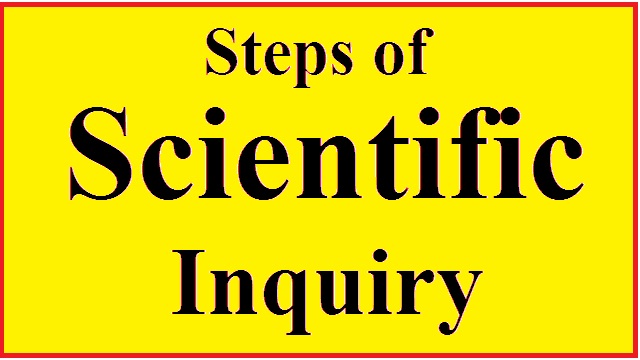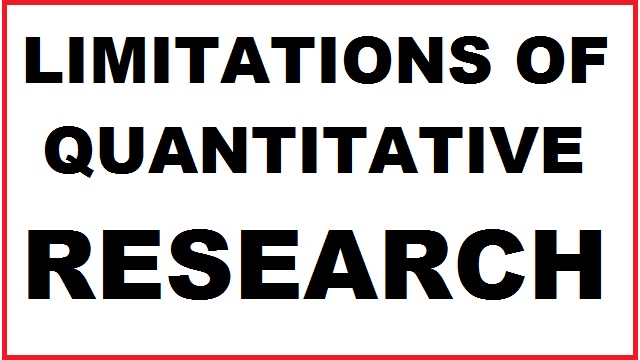Identification of Research Problem
Identification of Research Problem
INTRODUCTION
· A research problem is a question that researcher wants to answer or a problem that a researcher wants to solve.
· Identification & formulation of a research problem is the first and most important step of the research process.
· Selection of research problem depends on several factors such as researcher’s knowledge, skills, interest, expertise, motivation & creativity with respect to the subject of inquiry.
· Generally, a broad area is selected & then a broad topic is delimited or narrowed down to a specific one sentence statement of the problem.
· This step of the research process is considered as the most difficult & challenging, & need slots of time.
IDEFINITION RESEARCH PROBLEM
“A problem is an interrogative sentence or statement that asks what relation exists between two or more variable. The answer to question will provide what is having
sought in the research.” - Kerlinger
“A situation for which we have no ready & successful response by instinct or by previous acquired habit. We must find out what to do’, i.e. the solution can be found out only after an investigation.” - R.S. Woodworth
Thus a research problem is an area of concern where there is a gap in the knowledge base needed for professional practices.
SOURCES OF RESEARCH PROBLEM
a) RESEARCHERS EXPERIENCE
Day-to-day personal experience of a researcher may serve as good source of ideas to formulate a
research problem.
Researcher on the basis of his personal experience can try to know that which types of problems exist whose solution is necessary. How many and which types of such question whose answer is not available anywhere.
If in his experience any problem comes and his experience guides to any solution then
taking them research can be done.
Wherever experienced based circumstances, conditions, behavior seems to be facts of problems and whose solution is not available that can be selected as research problems.
It could be researchers
§ Personal experience
§ Practical experience or
§ Administrative/work experience
b) CRITICAL REVIEWS OF LITERATURE
Researcher’s study is the second source of research problem.
In every field on every subjects a great much literature is available. Intensive study of those reference material will enhance the knowledge of researchers that can be applied, on that basis of which events can be explained.
These may strike reader’s mind indirectly by stimulating imagination & directly by stating what additional research is needed.
In every field already have done many researches, studying of these researches will save the researchers from repetition of already proved works.
Some questions may arise in your mind or you can find some incompleteness in a particular research which can be investigated further by adding some important variables, again on that problem work can be done.
By review of related literature, researcher understand the research process, by which it can
be knowledgeable how the study can be done. He get knowledge about the used mechanism
and tools in the previous study which was successful and useful. He get insight the statistical
method by which validity of result can be proved.
Research oriented Professional Journals
Ø The Education Indexis the most complete biography of writings in the field of education .
Ø The Review of Educational Research a publication of the American Educational Research Association , reviews specific problem area in a three year cycle .
Ø The Encylopedia of Educational Research, gives a review of the research in nearly every area of education and covers 10 years period .
Ø Dissertation abstracts , The handbook of research on Teaching .
Ø Psychological Abstractsand the Sociological Abstracts are also excellent place to began general survey .
Ø The Journal of Experimental Education,
Ø The Journal of educational Research ,
Ø The Doctors ‘and Masters’ Theses in education ,
· The Research Needs in the Study Of education (1968)
· Survey of Research in education (1973, 1979 ,1987,1991)
· The third Indian Yearbook of Education; Educational research (1968)
c) SOCIAL ISSUES
A social issue or problem is an issue that has been recognized by society as a problem that is preventing society from functioning at an optimal level.
Social issues influence people within a society, and people strive to find solutions to them.
For example : Gender inquality, poverty, drug abuse, terrorism, casteism, digital divide etc.
Researcher can get a problem from society.
d) GROUP DISCUSSIONS
Group discussion with the persons from the same profession. Through that discussion you will get an idea or a problem.
Brainstorming sessionsare good techniques to find new questions, where an intensified discussion among interested people of the profession is conducted to find more ideas to formulate a good research problem.
Consultations with experts(resourse person or supervisor), Experts are believed to have sound experience of their respective field, which may suggest a significance problem to be studied. In addition, expert may help in finding a current problem of discipline to be solve, which may serve as basis for formulation of research problem
BASIC CONSIDERATION
When selecting a research problem/topic there are a number of considerations to keep in
mind which will help to ensure that your study will be manageable and that you remain
motivated. These considerations are:
•• Interest– Interest should be the most important consideration in selecting a research problem.
. If you select a topic which does not greatly interest you, it could become
extremely difficult to sustain the required motivation and put in enough time and energy to
complete it.
•• Magnitude–The topic should be narrowed down to something manageable, specific and clear. It is extremely important to select a topic that you can
manage within the time and with the resources at your disposal.
•• Measurement of concepts – If you are using a concept in your study (in quantitative studies),
make sure you are clear about its indicators and their measurement.
Do not use concepts in your research problem that you are not sure how to measure.
•• Level of expertise– Make sure you have an adequate level of expertise for the task you are
proposing.
•• Relevance– Select a topic that is of relevance to you as a professional. Ensure that your study
adds to the existing body of knowledge, bridges current gaps or is useful in policy formulation.
•• Availability of data– If your topic entails collection of information from secondary sources
(office records, client records, census or other already-published reports, etc.) make sure that
this data is available and in the format you want before finalising your topic.
•• Ethical issues– Another important consideration in formulating a research problem is the
ethical issues involved. In the course of conducting a research study, the study population may
be adversely affected by some of the questions (directly or indirectly); deprived of an intervention; expected to share sensitive and private information; or expected to be simply experimental ‘guinea pigs’.
STEPS OF IDENTIFICATION AND FORMULATING RESEARCH PROBLEM
1. Selecting a research topic area of interest
Formulation of a research problem begins with selection of a broad research topic from personal experience, literature, previous research, & theories in which researcher is interested.
The field selected should be one in which researcher is capable of demonstrating necessary initiative , originality and good judgement .
A thorough understanding of the known facts and ideas of the field is the most important.
For example: A researcher gets an idea to conduct a study on the ‘IMPACT OF COVID-19 PANDEMIC ON EDUCATION’
.
2.Reviewing literature
After getting a broad idea for research, he or she needs to review the literature & theories.
· It provides a theoretical background to your study.
· It helps you establish the links between what you are proposing to examine and what has already been studied.
· It enables you to show how your findings have contributed to the existing body of knowledge in your profession.
· It helps you to integrate your research findings into the existing body of knowledge.
In relation to your own study, the literature review can help in four ways. It can:
· bring clarity and focus to your research problem;
· improve your research methodology;
· broaden your knowledge base in your research area; and
· contextualise your findings
3. De-limiting the problem.
In this step, researcher proceeds from a general area of interest to more specific topic of research to conduct a study.
The broad areas has many aspects. The researchers should divide the broad topic into many subtopics. It is neither advisable nor feasible to study all subareas. Out of this list, select issues or subareas about which you wants to study.
Go through your list of subareas and delete all those subareas in which you are not very interested (Process of elimination). You need to continue until you are left with something that is manageable considering the time available to you, your level of expertise and other resources needed to undertake the study.
For example: Initially a researcher decide to conduct a
study on; IMPACT OF COVID-19 PANDEMIC ON EDUCATION
later in this stage researcher limits it to specific research topic
‘IMPACT OF ONLINE LEARNING ON STUDENTS OF VISVA-BHARATI DURING COVID-19 PANDEMIC’
4. Evaluating the research problem
Once researcher is clear about the specific research problem, next the research problem must be carefully evaluated for its significance, researchability, & feasibility.
Feasibility of the research problem should be evaluated for time, cost, availability of subjects & resources, administrative & peer support, ethical consideration, & researcher’s competence & interest.
Ask yourself,
‘Am I really enthusiastic about this study?’ and ‘Do I really have enough resources
to undertake it?’ Answer these questions thoughtfully and realistically. If your answer to
one of them is ‘no’, reassess your objectives.
There is no purpose in studying a problem which has already been investigated by other researchers.
To avoid Duplication, it is essential to examine very carefully the record of previous studies completed in one’s field .
The researcher should not select a problem until he is convinced that it is a new problem.
5. Formulating final statement of research problem.
After establishing the significance, researchability, & feasibility, then researcher finally formulates a final statement of a research problem.
A statement of research problem could be in declarative or interrogative format.
i. In declarative format, a research problem is stated in declarative statement.
For example:
‘A DESCRIPTIVE STUDY ON ‘IMPACT OF ONLINE LEARNING ON STUDENTS OF VISVA-BHARATI DURING COVID-19 PANDEMIC’.
ii. In interrogative format, a research problem is stated in question form.
For example:
‘WHAT IS THE INFLUENCE OF ONLINE LEARNING ON STUDENTS OF VISVA-BHARATI DURING COVID-19 PANDEMIC’.
REFERENCES
1.Best, J.W., & Kahn, J.V. (1998). Research in education (8th ed.).
2.Kumar Ranjit. (2011). Research Methodology a step by step guide for beginner(3rd ed.).
3.LPU (2014). Methodology of Educational Research and Statistics.
4. Dr. Sitesh Saraswat. Tripura University. (2016). Methodology of Educational Research




Comments
Post a Comment